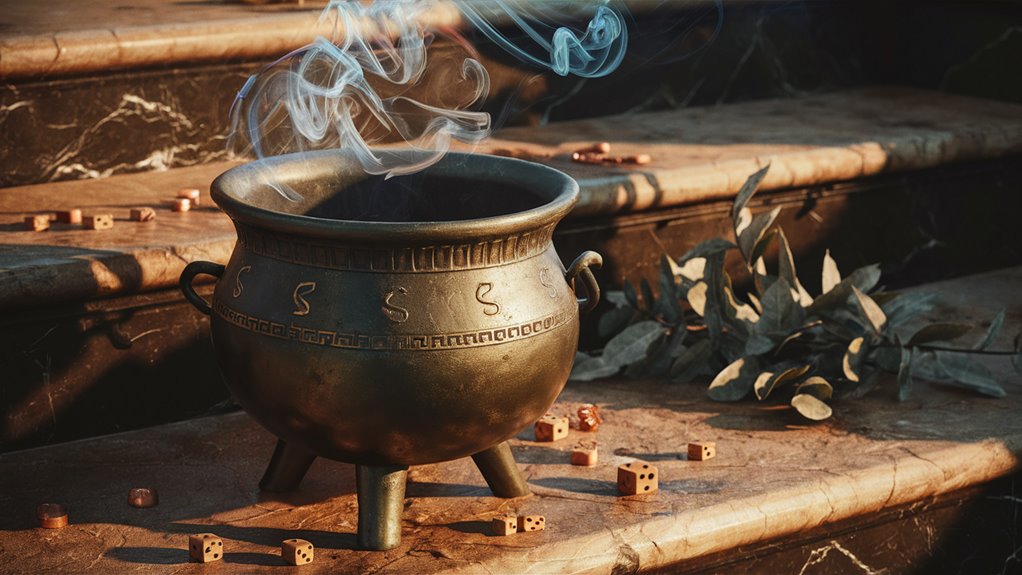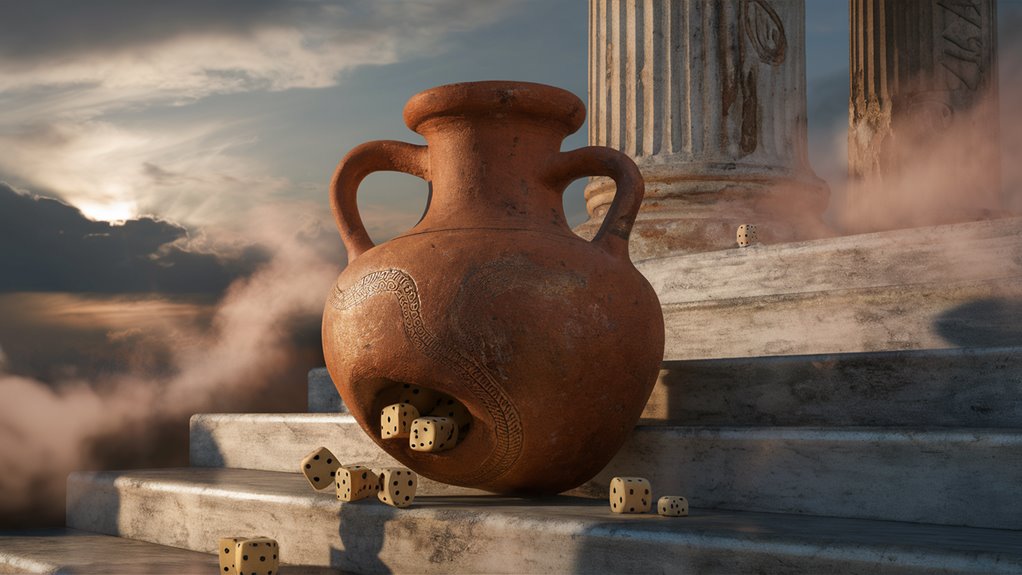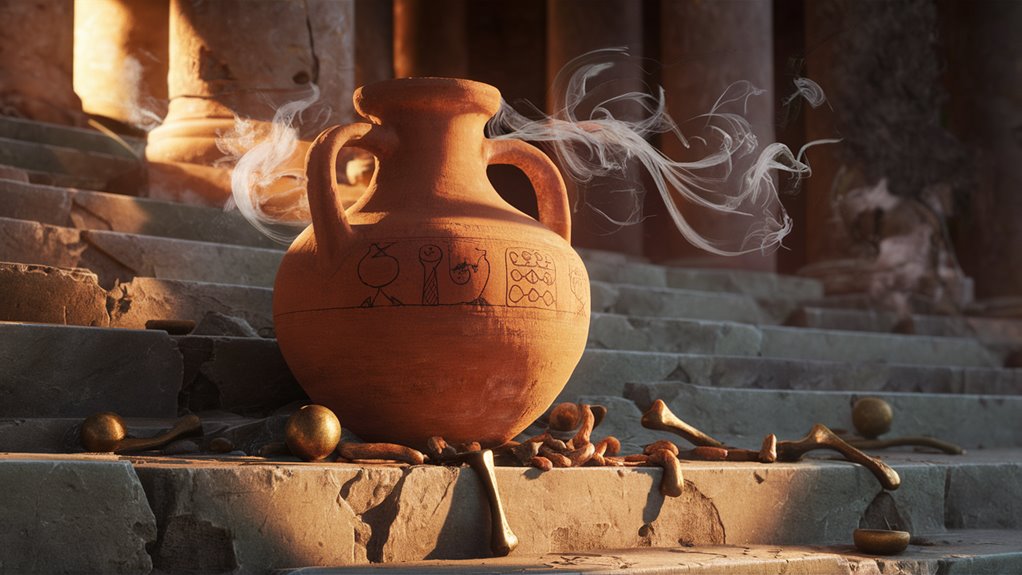Ancient Mythology’s Impact on Modern Betting Strategy
*Ancient myths and legends* offer profound strategic frameworks that can enhance modern betting approaches through time-tested principles of risk assessment and decision-making.
Mythological Wisdom in Betting
*Classical mythology* provides invaluable lessons for contemporary bettors through its rich tapestry of strategic thinking and risk management.
*Ancient heroes* like Odysseus demonstrate sophisticated approaches to:
- *Strategic planning* and calculated risk-taking
- *Information gathering* before major decisions
- *Pattern recognition* in complex situations
- *Resource management* under uncertainty
Oracle Systems and Data Analysis
The *ancient Oracle networks* established foundational methods for:
- *Systematic data collection*
- *Probability assessment*
- *Pattern recognition*
- *Risk evaluation*
Mathematical Principles in Ancient Betting
*Classical civilizations* developed sophisticated mathematical concepts that remain relevant to modern betting:
- *Geometric probability*
- *Statistical analysis*
- *Risk-reward calculations*
- *Strategic modeling*
FAQ: Ancient Wisdom in Modern Betting
Q: How do ancient myths relate to modern betting strategies?
A: Ancient myths provide frameworks for risk assessment, strategic planning, and decision-making that parallel modern betting principles.
Q: What betting lessons can we learn from Odysseus?
A: Odysseus exemplifies careful planning, information gathering, and strategic risk management – crucial skills in betting.
Q: How did ancient Oracles influence modern probability concepts?
A: Oracle systems established early methods of pattern recognition and data analysis that inform modern probability theory.
Q: What mathematical principles from antiquity apply to betting?
A: Ancient civilizations developed foundational concepts in probability, statistics, and risk assessment still used in betting.
Q: Why study ancient approaches to risk management?
A: Historical approaches offer time-tested wisdom for managing uncertainty and making strategic decisions in betting contexts.
*Integrating ancient wisdom* with modern betting practices creates a comprehensive approach to risk management and strategic decision-making.
These enduring principles continue to guide successful betting strategies while providing historical context for contemporary methods.
The Oracle’s Calculated Wisdom

The Oracle’s Calculated Wisdom: Ancient Statistical Methods
Ancient Oracles as Early Data Scientists
The *Oracle of Delphi* operated as more than just a religious institution – it functioned as an ancient *data analysis center*. These sacred sites served as sophisticated *information hubs* where *statistical patterns* and probability calculations shaped prophetic declarations. The oracles developed complex systems for *gathering intelligence* through their extensive network of visitors, including merchants, diplomats, and travelers.
Statistical Methods in Ancient Prophecy
*Ancient oracular practices* relied heavily on:
- *Systematic data collection* from diverse sources
- *Pattern recognition* across political and economic events
- *Probability assessment* through historical record analysis
- *Risk management* techniques in prediction delivery
The Oracle’s famous *ambiguous prophecies* represented early forms of *statistical hedging*, allowing for multiple interpretations while maintaining predictive credibility.
Modern Applications of Ancient Wisdom
Today’s *probability calculations* and *betting systems* mirror these ancient methods. Modern *statistical analysis* builds upon the foundational principles established by oracular traditions, replacing divine interpretation with *mathematical models* and *data-driven decisions*.
FAQ: Ancient Oracle Statistics
Q: How did ancient oracles gather data?
A: Through systematic collection of information from travelers, merchants, and diplomatic envoys visiting their sanctuaries.
Q: What made Oracle predictions reliable?
A: Careful analysis of historical patterns, extensive record-keeping, and strategic use of ambiguous language in prophecies.
Q: How does ancient oracle methodology relate to modern statistics?
A: Both systems emphasize data collection, pattern recognition, and probability assessment in making predictions.
Q: Were oracle predictions purely mystical?
A: No, they combined religious elements with practical information gathering and analysis of political, economic, and social trends.
Q: What legacy did oracle statistical methods leave?
A: Their approaches to information gathering and risk management continue to influence modern predictive practices and probability theory.
Key Takeaways
The *ancient oracular system* represents an early form of *statistical analysis* and *predictive modeling*. Their methods of *gathering intelligence*, *analyzing patterns*, and *managing uncertainty* remain relevant in modern statistical approaches, demonstrating the enduring value of systematic data analysis in decision-making processes.
Mythological Heroes Take Strategic Risks
*Strategic Risk-Taking Lessons from Mythological Heroes*
Ancient Heroes and Modern Risk Management
*Mythological heroes* demonstrate sophisticated approaches to *strategic risk assessment* that remain relevant in modern decision-making. *Odysseus*, master strategist of the Trojan War, exemplified calculated risk analysis through his methodical evaluation of risk-reward scenarios. The legendary *Trojan Horse strategy* represents the pinnacle of tactical innovation, combining minimal exposure with maximum potential gain.
*Strategic Preparation and Risk Mitigation*
*Perseus’s confrontation with Medusa* serves as a definitive case study in *risk management fundamentals*. His methodical approach encompassed:
- *Detailed intelligence gathering*
- *Strategic equipment selection*
- *Tactical planning and execution*
- *Contingency preparation*
*Exit Strategy and Contingency Planning*
*Theseus’s legendary labyrinth venture* illustrates the critical importance of *secure exit planning* in risk management. The implementation of *Ariadne’s thread* demonstrates how proper preparation and backup strategies ensure success in high-stakes situations.
#
Frequently Asked Questions
Q: What makes mythological heroes relevant to modern risk management?
A: Ancient heroes demonstrated timeless principles of strategic planning, risk assessment, and outcome optimization that parallel contemporary business and investment strategies.
Q: How did Odysseus exemplify strategic thinking?
A: Odysseus consistently evaluated risk-reward ratios and developed innovative solutions like the Trojan Horse, prioritizing efficiency and effectiveness.
Q: What risk management lessons can we learn from Perseus?
A: Perseus shows the importance of thorough preparation, proper tool selection, and strategic planning before confronting challenges.
Q: Why is Theseus’s use of Ariadne’s thread significant?
A: It demonstrates the crucial principle of establishing clear exit strategies and contingency plans before engaging in risky ventures.
Q: How can modern decision-makers apply these mythological lessons?
A: By implementing systematic risk assessment, thorough preparation, and clear contingency planning in their strategic decisions.
Key Strategic Principles from Mythology
- *Thorough risk assessment before action*
- *Strategic resource allocation*
- *Clear contingency planning*
- *Innovative problem-solving approaches*
- *Balance of risk and reward*
These timeless lessons from mythology continue to inform modern strategic thinking and risk management practices across various fields.
Divine Lessons in Probability

Divine Lessons in Probability: Ancient Wisdom Meets Mathematical Principles
The Mathematical Nature of Divine Fate
*Ancient mythology* reveals sophisticated understanding of *probability concepts* through divine beings’ manipulation of fate and prophecy. The *Greek Moirai* (Fates) exemplified advanced probability through their metaphorical thread-weaving, determining life outcomes with remarkable mathematical precision. This divine approach to chance demonstrated early civilizations’ grasp of *statistical principles*.
Oracle Predictions and Probabilistic Thinking
*Apollo’s Delphic Oracle* operated as an advanced *probability system*, offering calculated predictions based on multiple variables. These weren’t mere random prophecies but carefully constructed forecasts incorporating:
- Environmental factors
- Human behavior patterns
- Historical precedents
- Causal relationships
Roman Probability Systems
*Fortuna*, the Roman goddess of chance, represented more than simple luck – she embodied the *mathematical relationship* between actions and outcomes. Roman deities demonstrated understanding of:
- *Risk assessment*
- *Outcome prediction*
- *Statistical patterns*
- *Probability distribution*
FAQ: Divine Probability in Ancient Mythology
Q: How did ancient gods calculate probability?
A: Ancient deities were depicted using complex systems of fate-weaving, prophecy, and divine observation to calculate outcomes based on multiple variables.
Q: What role did the Moirai play in probability?
A: The Moirai determined life spans and destinies through precise calculations, representing early understanding of mathematical probability.
Q: How did Apollo’s predictions demonstrate probability knowledge?
A: Apollo’s oracular predictions incorporated multiple variables and potential outcomes, showing sophisticated probabilistic thinking.
Q: What was Fortuna’s connection to probability?
A: Fortuna represented the measurable relationship between actions and consequences, embodying systematic probability rather than random chance.
Q: How did ancient civilizations view chance?
A: Ancient cultures viewed chance not as chaos but as a comprehensible system governed by predictable patterns and mathematical principles.
Modern Applications of Ancient Probability Concepts
These *divine probability lessons* continue to influence modern understanding of:
- Risk management
- Decision theory
- Statistical analysis
- Predictive modeling
Understanding these ancient approaches to probability provides valuable insights into the development of mathematical thinking and risk assessment throughout human history.
Ancient Stories Modern Applications
Ancient Stories Modern Applications: Mythological Wisdom in Today’s Decision-Making
The Power of Mythological Risk Assessment
*Ancient mythology* provides profound insights into modern risk assessment and decision-making strategies. The Norse tale of *Odin’s sacrifice* at Mímir’s well demonstrates fundamental principles of *calculated risk-taking* – exchanging something valuable for potentially greater returns. This archetypal story directly parallels modern investment strategies and risk management protocols.
Predictive Analytics Through Classical Lenses
*Greek mythology* offers particularly relevant frameworks for contemporary predictive modeling. The *Cassandra paradigm* illuminates critical aspects of data interpretation and stakeholder trust. Modern analysts frequently encounter similar challenges when presenting statistically sound predictions that face institutional resistance, making this ancient narrative especially relevant for today’s data scientists.
Mathematical Principles in Ancient Tales
The *Mesopotamian epics* reveal sophisticated understanding of probability concepts. *Gilgamesh’s confrontations* with divine forces showcase early examples of:
- Strategic timing
- Odds calculation
- Risk mitigation strategies
- Resource management
Information Strategy in Classical Mythology
Egyptian mythology, particularly the *story of Isis and Ra*, demonstrates advanced concepts of:
- Information leverage
- 잭팟으로 가는 미지의 길을 계획
- Pattern recognition
- Competitive advantage
Frequently Asked Questions
How do ancient myths relate to modern decision theory?
Ancient myths contain fundamental principles of risk assessment and strategic thinking that align with contemporary decision-making frameworks.
What can Cassandra’s myth teach us about data analytics?
The myth illustrates challenges in communicating predictive insights and gaining stakeholder buy-in, even with accurate forecasting.
How does mythological wisdom apply to modern risk management?
Mythological narratives provide templates for understanding risk-reward relationships and long-term strategic planning.
What mathematical concepts appear in ancient stories?
Ancient myths often incorporate sophisticated concepts of probability, timing, and strategic resource allocation.
Why are ancient stories relevant to modern strategy?
These narratives capture timeless principles of human decision-making and risk assessment that remain applicable today.
Legends Guide Smart Betting Choices

Ancient Wisdom for *Smart Betting Strategies*
Mythological Insights for *Strategic Wagering*
Ancient legends provide *timeless principles* for developing effective betting strategies. These narratives offer profound insights into *risk management* and *strategic decision-making* that remain relevant for modern wagering.
*Classical Wisdom* for Modern Bettors
The Greek myth of Cassandra demonstrates the importance of *thorough analysis* and *market research* before placing wagers. Meanwhile, Norse sagas featuring Odin’s calculated sacrifices illustrate the necessity of *informed risk-taking* and *proper preparation*.
*Strategic Approaches* from Ancient Tales
Prometheus’s legendary heist exemplifies *careful risk assessment* and *strategic planning*. His methodical approach mirrors essential practices in *modern betting*:
- *Thorough evaluation* of potential outcomes
- *Calculated risk management*
- *Strategic timing* of actions
*Risk Management* Principles
The Egyptian concept of Ma’at teaches *fundamental balance* in betting positions:
- *Bankroll management*
- *Position sizing*
- *Risk-reward assessment*
*Common Pitfalls* and Warnings
King Midas’s tale serves as a powerful warning against:
- *Emotional betting*
- *Loss chasing*
- *Overconfidence*
## Frequently Asked Questions
Q: How do ancient legends relate to modern betting?
A: Ancient myths illustrate timeless principles of risk assessment, strategic planning, and disciplined decision-making.
Q: What is the most important lesson from mythological betting wisdom?
A: The emphasis on balanced risk management and thorough analysis before taking action.
Q: How can bettors avoid the Midas trap?
A: By maintaining emotional control and following predetermined strategies rather than chasing losses.
Q: What role does preparation play in successful betting?
A: Like Prometheus, successful bettors thoroughly analyze opportunities before taking calculated risks.
Q: How can ancient wisdom improve betting decisions?
A: By providing time-tested frameworks for risk assessment and strategic planning.
Final Thoughts
*Ancient Mythology’s Impact on Modern Betting Strategy*
*Ancient myths and oracular traditions* offer profound insights into calculated risk-taking that continue to resonate in today’s betting landscape. By analyzing mythological decision-making patterns and divine wisdom, we can extract valuable lessons for modern wagering strategies.
*Understanding Mythological Risk Assessment*
The *ancient Greeks consulted oracles* before major decisions, demonstrating an early form of probability assessment. These consultations involved careful interpretation of signs and omens, similar to how modern bettors analyze statistics and trends. *Heroic narratives* frequently showcase strategic thinking and calculated risk-taking, providing timeless templates for betting psychology.
*Practical Applications in Modern Betting*
*Classical mythology frameworks* can enhance contemporary betting approaches through:
- Pattern recognition derived from prophetic traditions
- Risk management lessons from heroic quests
- Strategic thinking inspired by divine wisdom
- Emotional control techniques from stoic philosophers
*FAQ: Mythology and Betting Strategy*
Q: How do ancient myths relate to modern betting?
A: Ancient myths demonstrate timeless principles of risk assessment, strategic decision-making, and probability evaluation that remain relevant to contemporary betting.
Q: What betting lessons can we learn from oracles?
A: Oracular traditions teach systematic analysis, pattern recognition, and the importance of gathering information before making decisions.
Q: How can mythological heroes inspire betting strategy?
A: Heroic narratives illustrate calculated risk-taking, strategic planning, and maintaining composure under pressure.
Q: What role does divine wisdom play in modern wagering?
A: Ancient divine wisdom provides frameworks for understanding probability, fate, and strategic decision-making in betting contexts.
Q: Can mythology improve betting psychology?
A: Yes, mythological teachings offer valuable insights into emotional control, disciplined thinking, and strategic risk management.


